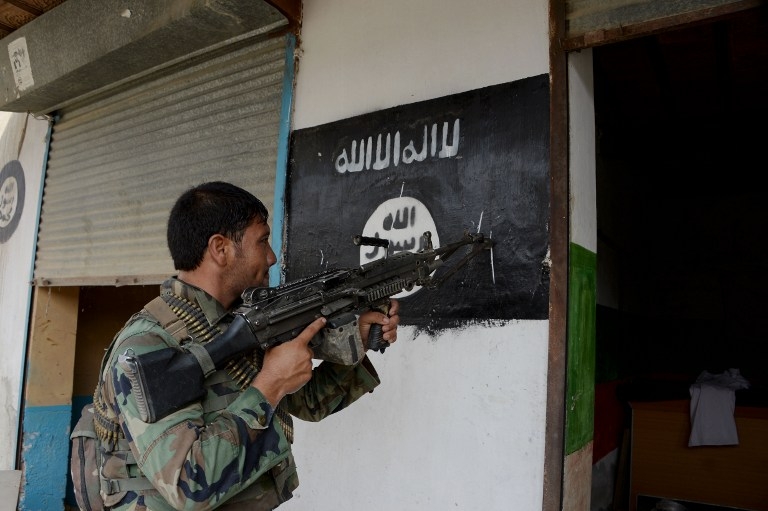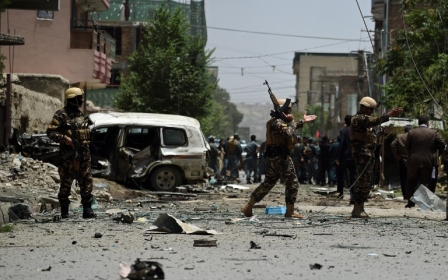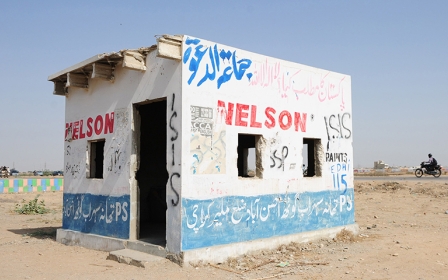Senior IS leader in Afghanistan believed killed in air strike

The Islamic State (IS) group's leader in Afghanistan and Pakistan, Hafiz Saeed, was killed last month in an air strike in Afghanistan's Nangarhar province, the US defence department said on Friday.
Saeed was named head of IS's "Khorasan province," which includes Afghanistan, Pakistan and parts of neighbouring countries, early last year when a group of Pakistani Taliban switched allegiance to the group, which controls territory in Syria and Iraq.
Pentagon deputy press secretary Gordon Trowbridge said the strike came while US and Afghan special operations forces carried out counter-IS operations in southern Nangarhar province throughout July.
"During this time, US forces conducted an air strike targeting Hafiz Saeed Khan, the Islamic State in the Levant-Khorasan emir, in Achin district, Nangarhar province July 26, resulting in his death," Trowbridge said.
Saeed "was known to directly participate in attacks against US and coalition forces, and the actions of his network terrorised Afghans, especially in Nangarhar," he added.
Afghanistan's ambassador to the US, Omar Zakhilwal, confirmed Saeed's death.
"I can confirm that ISIS [Islamic State] Khurasan leader Hafiz Saeed Khan along with his senior commanders and fighters died in a US drone strike on July 26 in Kot district of Afghanistan's Nangharhar province," Zakhilwal told the Reuters news agency.
Details of the strike were not immediately available, but a US official told the BBC that Saeed was killed by a drone.
The death of Saeed represents a major setback for the IS group as it tries to establish itself as a serious force in Pakistan and Afghanistan.
Afghan authorities erroneously believed Saeed had been killed in another strike in July 2015, when a US drone targeted dozens of IS-linked cadres in restive Nangarhar province, close to the Pakistani border.
That attack came less than six months after another strike in Afghanistan killed Abdul Rauf Khadim, who was thought to be the IS number two in the country.
Some Afghan Taliban members have defected to IS, with fighters apparently adopting the black IS flag in a move to rebrand themselves as a more lethal force.
Most NATO combat troops who had been fighting the Taliban and other militants have now left Afghanistan, with responsibility for the country's security switching to local forces.
The Afghan troops, however, still rely on US air support and training and have struggled to stem frequent Taliban offensives.
The former Taliban leader Mullah Akhtar Mansour was killed in a US drone strike inside Pakistan in May.
Both the Pakistani Taliban and IS fighters have claimed responsibility for a horrific suicide bombing on Monday at a hospital in Pakistan that killed 73 people.
The IS group has also claimed responsibility for a 23 July attack in Kabul that killed dozens of people and left hundreds maimed.
IS has been trying to expand its presence beyond Iraq and Syria, its stronghold and the centre of its self-declared caliphate, where tens of thousands of fighters have been killed in air strikes and offensives, but it has made only limited progress.
Middle East Eye propose une couverture et une analyse indépendantes et incomparables du Moyen-Orient, de l’Afrique du Nord et d’autres régions du monde. Pour en savoir plus sur la reprise de ce contenu et les frais qui s’appliquent, veuillez remplir ce formulaire [en anglais]. Pour en savoir plus sur MEE, cliquez ici [en anglais].




